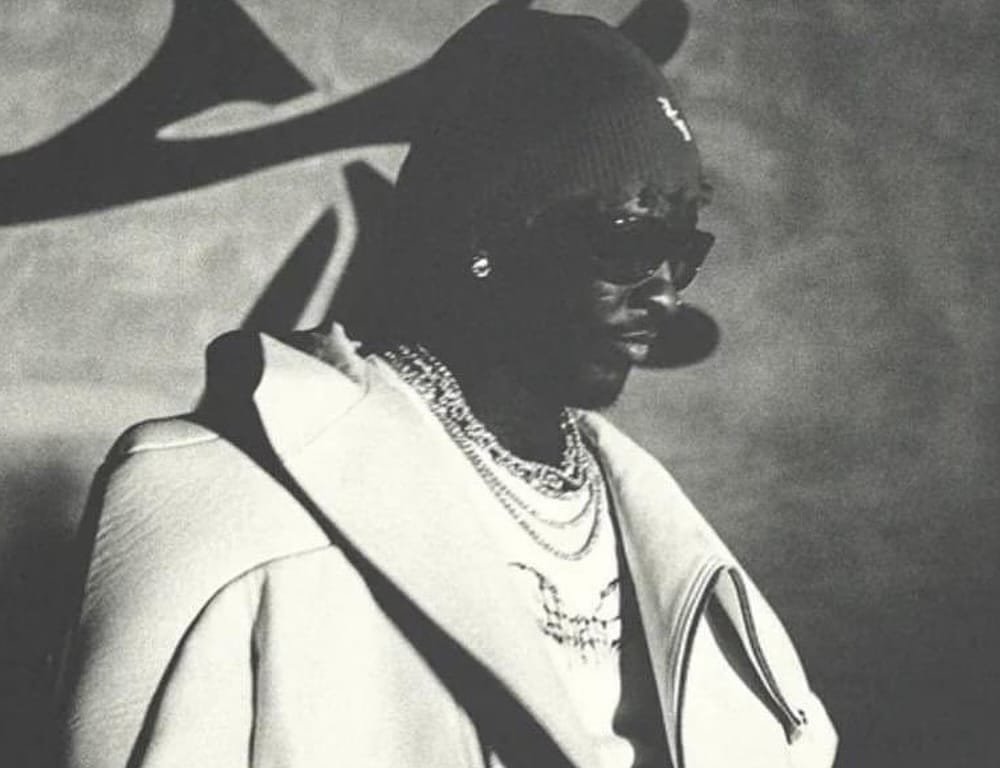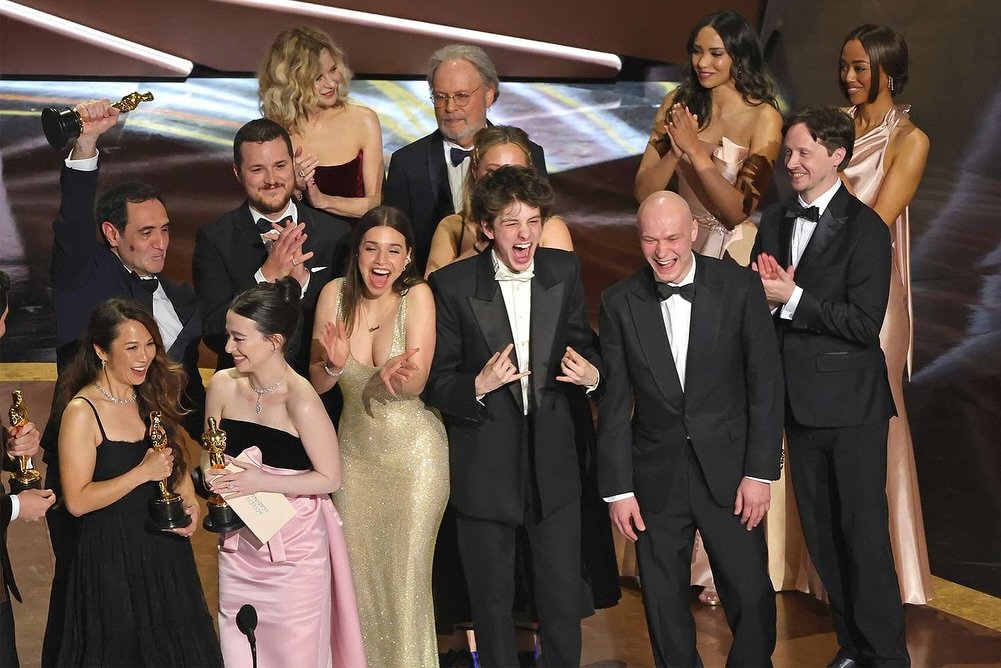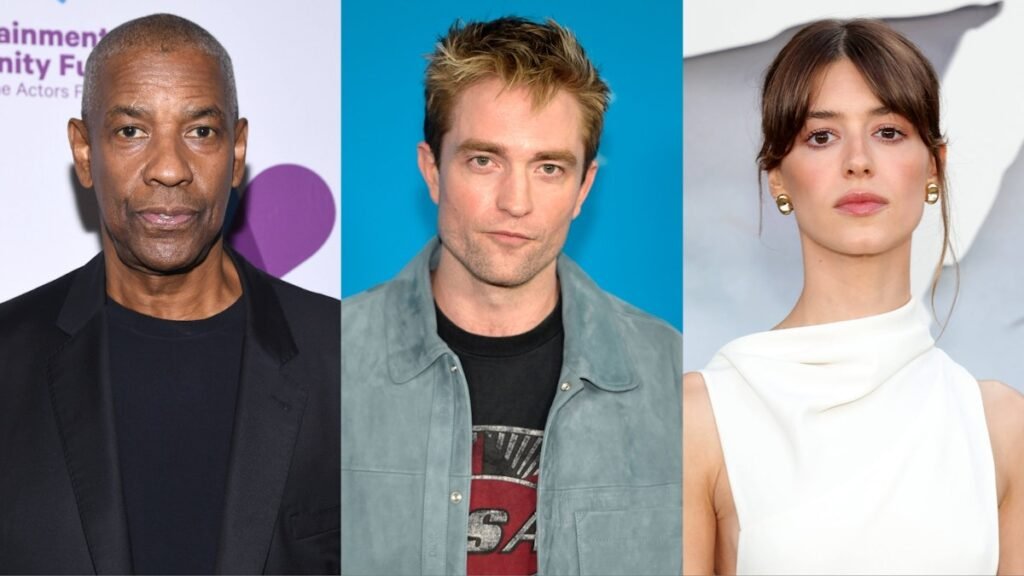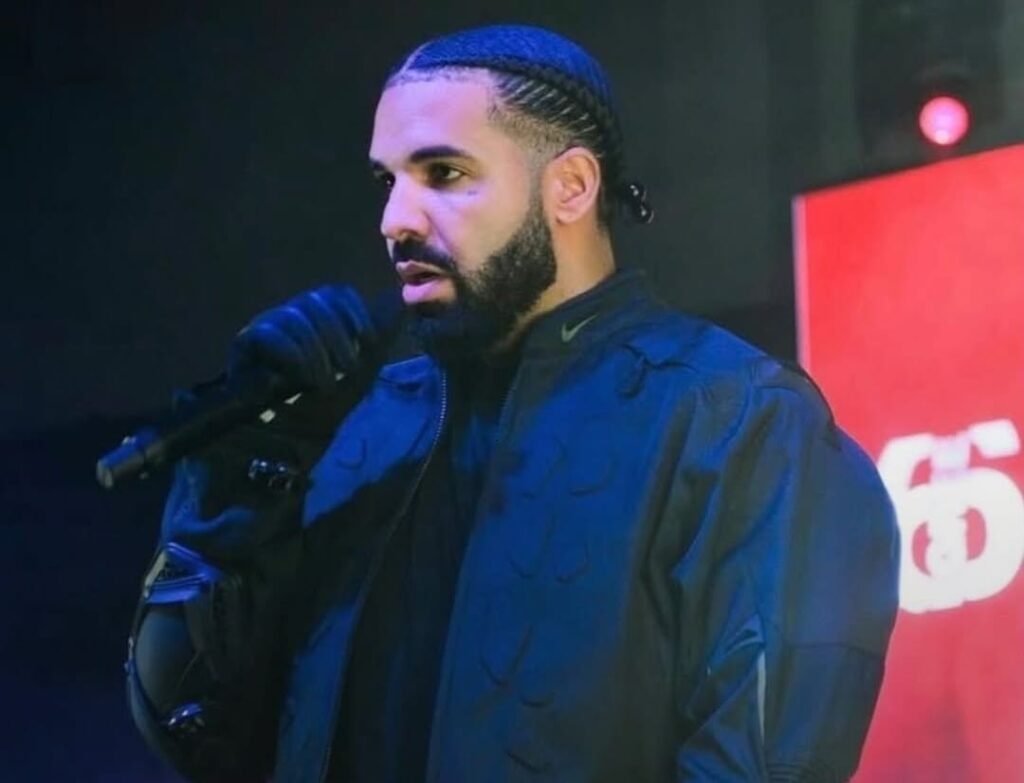
In a major turn of events in one of hip-hop’s most talked-about legal sagas, a federal judge has officially dismissed Drake’s defamation lawsuit against Universal Music Group (UMG). The case, which stemmed from UMG’s promotional involvement in Kendrick Lamar’s explosive diss track “Not Like Us,” has now been declared legally baseless — at least in the eyes of the court.
According to official court documents, the judge ruled that the statements referenced in the viral track are “nonactionable opinion”, meaning they cannot be treated as factual claims in a court of law. Simply put, because the alleged defamatory remarks were expressed artistically — not as verifiable facts — they fall under the protection of free speech and artistic expression.
The Lawsuit and Its Origins
Drake’s legal team initially filed the defamation suit in January 2025, accusing UMG of “knowingly promoting and profiting from defamatory content” contained within Not Like Us. The rapper’s attorneys argued that the record label’s actions caused reputational harm, incited hostility online, and endangered Drake’s personal safety — particularly in the wake of the intense public debate and viral discourse surrounding the Lamar vs. Drake feud.
Interestingly, the lawsuit did not directly target Kendrick Lamar, but rather UMG, which distributed and promoted Lamar’s music. Drake’s lawyers asserted that by pushing Not Like Us across major streaming platforms, playlists, and social media promotions, UMG effectively amplified false allegations that had tangible real-world consequences.
Despite the case’s complexity, the judge’s ruling was clear-cut: artistic expression, no matter how biting or controversial, remains protected speech unless it explicitly claims to present factual information.
Judge’s Statement and Legal Takeaway
In the court’s final decision, the judge concluded:
“Because the Court concludes that the allegedly defamatory statements in ‘Not Like Us’ are nonactionable opinion, the motion to dismiss is GRANTED.”
This single sentence effectively closed the case — marking a decisive legal victory not only for UMG, but also for artistic freedom in hip-hop. The ruling reinforces a long-standing legal precedent: rappers can engage in lyrical battles and hyperbole without facing defamation claims, as long as their bars are framed as opinion or creative expression, not factual accusation.
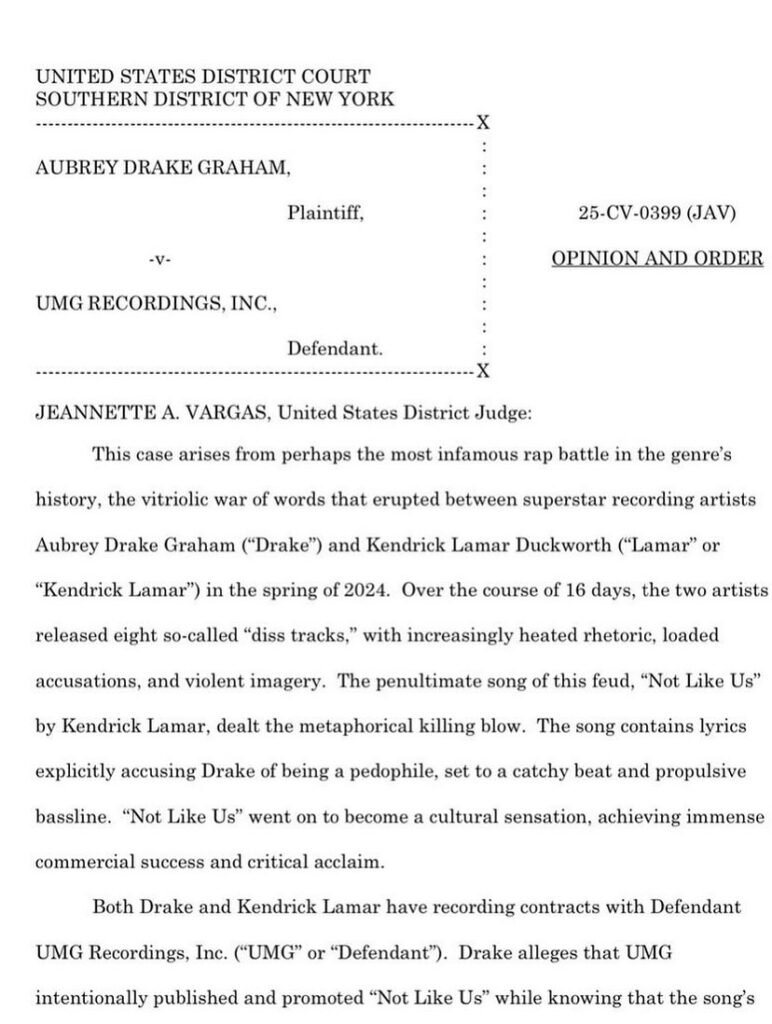
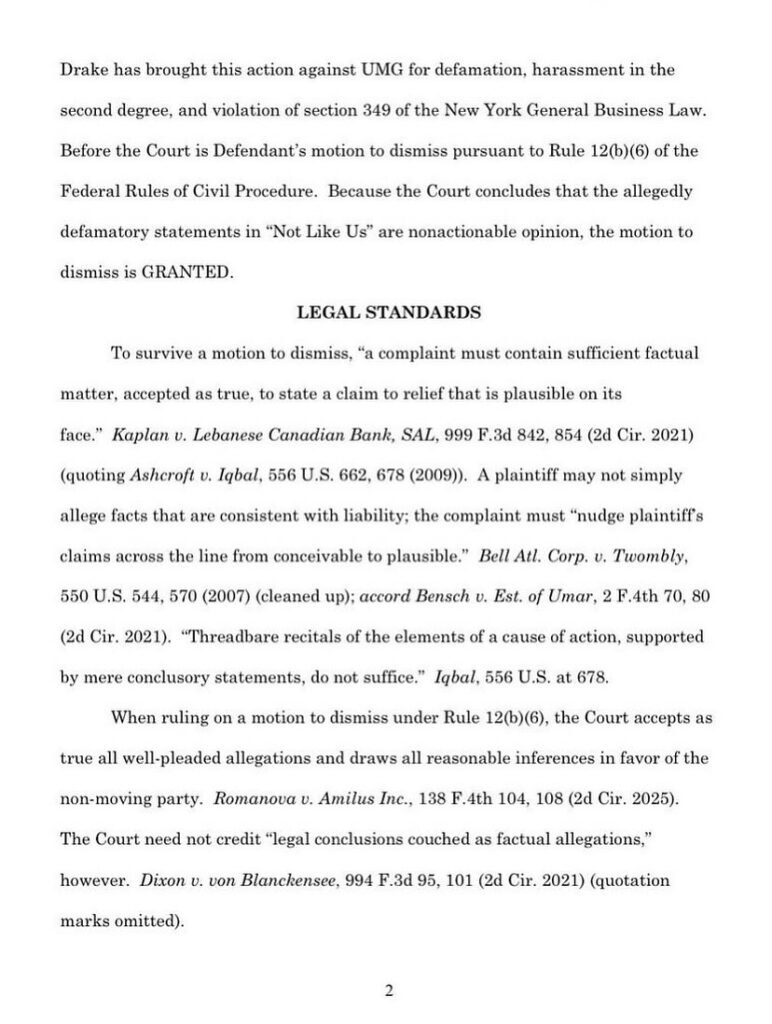
The Broader Implications for Hip-Hop
This decision doesn’t just affect Drake and UMG — it sends a message across the entire rap industry. Diss tracks have long been part of hip-hop’s DNA, serving as both competitive art and cultural commentary. However, in the digital era — where viral clips, memes, and AI-enhanced narratives spread faster than ever — the line between entertainment and defamation has grown increasingly thin.
Legal experts suggest that this case reaffirms artists’ right to creative interpretation, even when their lyrics cut deep. “The judge’s decision protects the very foundation of hip-hop expression — the ability to critique, battle, and provoke,” said one entertainment lawyer familiar with the matter. “If every diss record could spark a lawsuit, the genre’s authenticity would collapse overnight.”
Drake’s Reputation and Public Perception
For Drake, the court’s decision adds another complex chapter to what has been a turbulent year. The Toronto superstar has faced waves of scrutiny — not just from rivals like Lamar and Yeat, but also from critics who question his creative direction and online persona.
Despite losing the case, Drake remains one of the most powerful names in global music, commanding an audience of hundreds of millions across platforms. His camp has not released an official statement yet, but insiders hint that he’s already shifting focus back to music, with new collaborations and projects rumored to drop before year’s end.
While the lawsuit’s dismissal may sting legally, it might ultimately free Drake from a distracting narrative — allowing him to reassert control through art rather than litigation.
Kendrick Lamar’s Unshaken Legacy
Meanwhile, Kendrick Lamar’s Not Like Us continues to dominate cultural conversations. The track, widely hailed as one of the sharpest diss records in modern rap history, has transcended music charts to become a defining pop culture moment — complete with viral TikToks, think pieces, and countless reaction videos.
Kendrick himself has remained silent since the ruling, but the outcome reinforces what many already suspected: his pen remains untouchable both artistically and legally. The ruling essentially validates Not Like Us as creative speech — not defamation — preserving its place in hip-hop history as both art and commentary.
The Industry’s Mixed Reaction
The hip-hop community has been divided since news of the ruling broke. Some industry veterans applaud the judge’s decision as a victory for free expression, while others believe it reveals how fragile reputation management has become in the age of viral feuds.
Producers, journalists, and fans have weighed in on X (formerly Twitter), debating whether Drake’s lawsuit was a legitimate attempt to protect his image or an overreaction to artistic critique. One viral post summed it up best: “You can’t sue hip-hop for being hip-hop.”
UMG, for its part, has remained diplomatic, issuing a brief statement celebrating the court’s respect for “creative autonomy and artistic discourse.”
What’s Next for Drake and UMG
With the lawsuit dismissed, UMG can move forward without the shadow of legal controversy — though the case has sparked internal conversations across labels about the ethics of promoting diss tracks for profit. Some insiders say labels may begin implementing internal review policies for potentially “defamatory” releases to avoid future public backlash.
As for Drake, this marks the end of one legal chapter but possibly the beginning of a new creative era. Fans speculate that his next project could directly address the ordeal — possibly transforming legal loss into musical catharsis, as he’s done many times before.
Final Thoughts
The dismissal of Drake’s defamation suit underscores a crucial truth about modern music culture: artistic speech, even when controversial, remains one of the most fiercely protected freedoms in entertainment.
While the legal system sided with UMG this time, the cultural debate continues — balancing the right to express against the right to protect one’s name. For now, Not Like Us stands not just as a chart-topping diss, but as a case study in how far rap can go before crossing legal lines.
And if history tells us anything, Drake isn’t one to stay silent for long.


